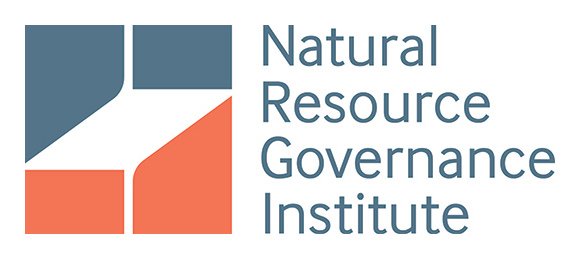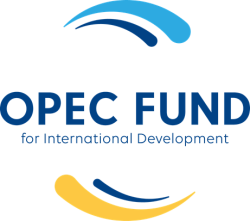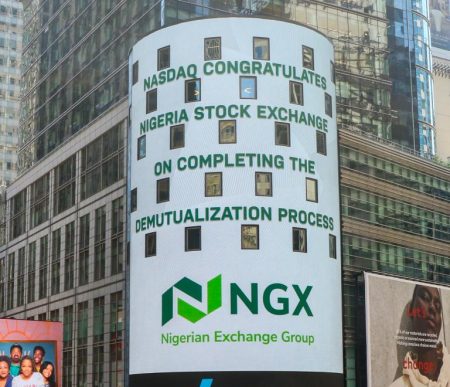 OpeOluwani Akintayo
OpeOluwani Akintayo
09 February 2018, Sweetcrude, Lagos — The Natural Resource Governance Institute, NRGI has urged the Nigerian National Petroleum Corporation, NNPC to exercise caution over the $5 billion cash-for-crude prepayment loan.
In a statement the institute disclosed that if the loan is not carefully structured and managed, it could mortgage the country’s resource wealth without much productive return.
“It also poses major fiscal risks, especially to how much money the government collects from NNPC”.
In November, news broke that Nigeria’s state oil firm is looking to set up a $3.5-$5 billion cash-for-crude prepayment with some of the world’s top commodity traders to fund oil and gas upstream projects as well as related infrastructure.
According to the report, the drop in oil prices in 2015 had led to billions of dollars in old debts for Nigeria, leading NNPC to looking for how to generate revenue from outside the country.
Major traders such as Glencore, Vitol and Trafigura showed interest, while Standard Chartered was hired to advise on the oil prepayment and a request-for-proposal was issued for a $3.5-$5 billion loan to be repaid with 70, 000 barrels of crude oil per day over five to seven years, according to Reuters.
Vitol already has a major presence in Nigeria after buying petrol stations via a joint venture with local producer Oando and private equity fund Helios.
Vitol is also among a list of majors traders, including Trafigura, that participate in a swap scheme to deliver refined products in exchange for crude.
According to NRGI, lower revenues received by the federal government could mean that it is likely that proposed loans would be repaid at the government’s expense—making it likely in turn that the amount of oil going toward repaying debts rather than funding budget priorities will increase even further.
“This risk could be reduced if NNPC paid for loans with its own production (i.e., the production of its subsidiary NPDC)”.
Furthermore, it said while the deal would provide immediate guaranteed revenue, Nigeria is likely to miss out on the benefits of future increases in oil prices.
On the flip-side, if oil prices decline, NNPC may still be obliged to service the loan at its original terms, thereby pouring limited revenues into repaying the loans.
Opacity and politicised agendas could be another barrier, according to NRGI.
It argued that oil-backed loans tend to be very opaque, preventing citizens and accountability actors from properly scrutinising the costs, repayment terms and utilisation of the loans.
“In NNPC’s case, there is little documented evidence to justify all the loans provided by oil companies, so why would a loan from commodity traders be any different? Political cycles also add incentives for reckless borrowing, since borrowing governments would not need to deal with long-term economic implications and re-negotiations. With the 2019 elections around the corner, there are additional risks connected to NNPC’s history of politicized spending, as seen in the run-up to the 2015 general elections”.
According to the statement, NNPC’s poor operational and spending record could hamper the success of the loan.
“Nigeria’s failure to maximize returns from its oil sector can be largely attributed to NNPC’s legacy of mismanagement. Over 40 years, inefficiencies, performance failures and unjustified spending still characterize NNPC and its subsidiaries. The corporation recorded losses of N276 billion and N198 billion in 2015 and 2016 respectively, and still remains unprofitable”.
Furthermore, it said the recent contradictory claims about NNPC’s “unlawful” spending (by the Minister of Petroleum Resources, Ibe Kachikwu, and NNPC’s Group Managing Director, Maikanti Baru) indicates the weak public oversight of NNPC’s contracts and procurements.
“This prompts two important questions: First, why pour more money into a company that has not proven itself a capable steward of national wealth? Second, are NNPC’s proposed capital projects really more important than other public priorities? Neither question has been satisfactorily answered, and it is likely that NNPC will not translate the loan into positive outcomes for the corporation or the wider Nigerian economy”.
Venezuela and Congo-Brazzaville’s experiences with such loans should serve as a cautionary tales for NNPC.
During the boom years prior to 2014, Venezuela borrowed nearly USD 50 billion from state-owned Chinese companies in exchange for oil, and borrowed about USD 5 billion from Russia’s Rosneft under similar terms.
Following the oil price slump and Venezuela’s subsequent economic crisis, the Venezuelan National Oil Company (PDVSA) fell months behind in its oil deliveries to China and Russia.
The defaults were blamed on PDVSA’s myriad operational and financial struggles and culminated in diminished production—averaging 2.5 million bpd in 2016, PDVSA’s lowest rate in two decades.
While Chinese and Russian diplomats have publicly asserted support for Venezuela, the terms of their loans would allow them to forcefully recover their funds by seizing projects or assets within or outside Venezuela’s oil sector.
Meanwhile, oil-backed loans have led to corruption in Congo-Brazzaville. Gunvor (a major Swiss commodity trading company with a specialty in trading Russian oil) secured untendered contracts for lifting 22 cargos of crude oil worth USD 2.2 billion from Congo-Brazzaville in exchange for six $125 million pre-financing deals (USD 750 million in total).
Swiss law enforcement and Non-Governmental Organisations have raised concerns that Gunvor made inappropriate payments to politically connected middlemen in order to secure these lucrative deals.
Despite the challenges illustrated above, NRGI said commodity-backed loans are still on the rise as resource-rich countries are increasingly turning away from multilateral loans and are now looking to private lending sources—perhaps because this allows them to avoid scrutiny.
“Given that such oil-backed deals significantly impact public revenues and are typically utilized outside conventional public budgetary expenditures, fostering transparency is an important way to ensure that citizens and accountability actors can hold the government and lenders accountable as they execute the agreements”.
“Given that 2018 is an election campaign year, it is even more vital to ensure that safeguards are put in place to avoid the diversion of funds”.
It said to ensure transparency and promote informed public debate on the proposed oil-backed loan and its terms, the Nigerian government should disclose: parties to the agreement, including the government agencies involved, the lenders and oil recipients, and recipients of government funds, details of the agreement, including the amount borrowed, the repayment terms and schedule, and the flow of oil and money, context of the loan, including existing indicators of debt burden and debt sustainability, adherence to laws of procedures, and the repayment plan.
The NNPC should also disclose tender process, including measures to ensure an open and competitive tender for the loans, the procedure for obtaining loans in accordance to applicable laws and policies, and the required approvals (e.g., from the NNPC board or the Federal Executive Council), and loan usage, including the detailed description and justification of projects the loan is intended for (including the procurement process, schedules and anticipated completion dates).
Nigeria’s NNPC has had cash-flow problems for years and has been chronically behind payments for its stakes in upstream joint-ventures with Shell, Chevron, Total, Eni and ExxonMobil.
After project development began to stall following the collapse in oil prices, Oil Minister, Emmanuel Ibe Kachikwu reached a deal in 2016 with its major foreign oil-producers to repay $5.1 billion over five years, interest free.
NNPC had already leveraged over 300,000 barrels per day of crude to cover current fuel imports via a crude-for-product swap scheme as well as debts to traders dating back nearly a decade.



